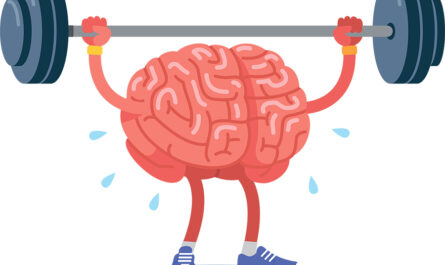Time management is crucial for success in college and university. As students navigate a challenging academic environment, they must learn to balance their coursework, social life, and personal well-being. By implementing time management strategies, students can improve their productivity, reduce stress, and optimize their overall college experience.
Page Contents
Time Management Apps and Tools: Boosting Your Efficiency

In today’s digital age, there are numerous apps and tools designed to help you manage your time more effectively. Experiment with different tools to find the one that best fits your needs and personal preferences. These apps can help you stay organized, set reminders, and track your progress, making it easier to stay on top of your commitments.
For some students, an essay writing service can be a helpful tool in managing their time and workload. These services can provide assistance with research, editing, and proofreading, allowing students to focus on other important tasks and commitments. However, it’s crucial to use these services ethically and responsibly. Ensure that you are still actively engaged in the learning process and not using these services as a means to avoid your academic responsibilities.
Prioritize Your Goals: Identifying What Truly Matters
These may include academic success, personal growth, or social connections. Once you have a clear understanding of your goals, it’s easier to allocate your time and energy appropriately. Create a list of your priorities and rank them in order of importance. This will help you focus on what matters most and make better decisions about how to spend your time.
Creating a Realistic Schedule: Balancing Academics, Social Life, and Self-Care

Developing a realistic schedule is essential for managing your time effectively. Consider all aspects of your life, including academic commitments, extracurricular activities, and personal responsibilities. Be sure to include self-care, exercise, and relaxation. Regularly review and update your schedule, making adjustments as needed. Having a well-planned schedule will help you stay organized and prevent procrastination.
Mastering the Art of Productive Procrastination
Productive procrastination is the idea of using your procrastination time wisely by completing less critical tasks while avoiding more important ones. By doing this, you’re still making progress and maintaining momentum, even if you’re not tackling your most pressing assignments. For example, if you’re avoiding writing an essay, use that time to complete smaller tasks like organizing your notes or doing laundry. This way, you’ll still feel a sense of accomplishment and reduce the guilt associated with traditional procrastination.
Effective Note-Taking: Streamline Your Learning Process
Improving your note-taking skills can save time and enhance your academic performance. Experiment with different note-taking methods, such as the Cornell, outline, or mind-mapping techniques, to find the one that works best for you. Focus on capturing the main points and organizing your notes in a clear, logical format. Good note-taking habits will make studying and reviewing material more efficient and manageable.
Group Study Sessions: Collaborate to Save Time and Improve Understanding

By collaborating with your peers, you can share knowledge, clarify misunderstandings, and gain new perspectives on course material. Schedule regular group study sessions, and make sure to set clear goals and expectations for each meeting. Working together can help you stay motivated and ensure that everyone is prepared for exams and assignments.
Combating Distractions: Strategies for Maintaining Focus
Distractions are a major obstacle to effective time management. To stay focused, identify your main distractions (such as social media, email, or noise) and develop strategies to minimize them. This may include setting specific periods for checking social media, turning off notifications, or using noise-canceling headphones. By creating an environment that is conducive to concentration, you’ll be better able to manage your time and complete tasks efficiently.
Breaking Tasks into Smaller Chunks: The Power of Incremental Progress
Large assignments or projects can be daunting, making it difficult to know where to start. Break down these tasks into smaller, manageable steps, and tackle them one at a time. This approach will help you make steady progress and reduce the feeling of being overwhelmed. Additionally, crossing off completed steps can provide a sense of accomplishment and motivation to keep going.
The Pomodoro Technique: Enhancing Concentration and Reducing Burnout

The Pomodoro Technique is a method that involves breaking your work into 25-minute intervals (called Pomodoros) with short breaks in between. After completing four Pomodoros, take a longer break. This technique can help improve focus, prevent burnout, and maintain a steady work pace. Experiment with the length of your Pomodoros and breaks to find the balance that works best for you.
Utilizing Campus Resources: Tapping into Services to Maximize Your Time
Colleges and universities offer various resources and services to help students succeed academically and manage their time effectively. These may include tutoring centers, academic advisors, career services, and mental health counseling. Take advantage of these resources to improve your study habits, gain valuable insights, and maintain a healthy work-life balance.
Developing a Sleep Routine: The Connection Between Rest and Productivity

A consistent sleep routine is essential for optimal time management and academic performance. Aim for 7-9 hours of sleep per night and establish a regular sleep schedule, even on weekends. Create a bedtime routine to help signal to your body that it’s time to wind down and rest. Limit exposure to screens and caffeine in the hours leading up to bedtime, and ensure your sleep environment is comfortable and conducive to rest. A well-rested mind is more focused, productive, and better equipped to handle the demands of college life.
Conclusion: Becoming a Time Management Pro for a Successful College Experience
Effective time management is essential for making the most of your college or university experience. By implementing the strategies and hacks outlined in this blog post, you can optimize your productivity, reduce stress, and achieve your academic and personal goals. Remember that time management is an ongoing process, and it’s essential to regularly review and adjust your strategies as needed. With dedication and perseverance, you can become a time management pro and set yourself up for a successful and fulfilling college experience.






